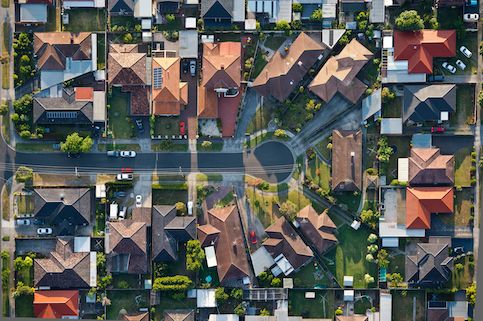The traditional advice to employees in the 20th century was clear: postpone retirement until after your mortgage is paid off. The rationale behind the advice stemmed from the typical income level of retirees. The average retiree lived off a reduced monthly income and relied on a pension. Without mortgage payments, retirees increased their chances of comfortably covering their living expenses.
But the real estate market and investment options have changed in the 21st century. Today, Americans routinely buy homes later in life and are more likely to buy more than one home during their careers.
While there is still a case to make for paying your mortgage off early – it’s not always necessary or advisable. You can have a financially secure retirement and a mortgage. It just depends on your circumstances.
Consider your present and future finances if you’re debating whether to pay off your mortgage early. The answer will depend on your financial situation.
Why It’s Better To Retire After Paying Off Your Mortgage
Generally, it’s better to pay your mortgage from income rather than savings. That way, you’re not cutting into your future financial well-being. Savings are necessary for the years when you don’t work or want to work less. Other expenses, such as health care, may increase, and you should have a financial cushion to deal with emergencies and unexpected expenses. Using your savings to pay off your mortgage may leave you vulnerable to unforeseen costs.
See What You Qualify For
Buy A Home
Discover mortgage options that fit your unique financial needs.

Refinance
Refinance your mortgage to have more money for what matters.
Tap Into Equity
Use your home’s equity and unlock cash to achieve your goals.
Why It’s Okay To Have A Mortgage In Retirement
While paying off a mortgage early can eliminate home loan debt, it’s not mandatory for every homeowner.
According to the U.S. Census Bureau, roughly 1 in 3 Americans aged 65 and over are paying 30% or more of their monthly income toward housing costs. With so much of their income already dedicated to housing, an early mortgage payoff may not be an option.
Also, more and more Americans are earning an income well into retirement. They may work part-time and rely on resources like Social Security, 401(k) plans and other investments. Based on these various income streams, some retirees may earn what they made before retiring.
Having a stable source of post-retirement income means that paying your mortgage off early may not jeopardize your retirement nest egg.
Reasons To Pay Off Your Mortgage Before Retirement
There are some benefits to paying off your mortgage before retirement. For example:
Gain Full Ownership Of Your Home
Paying off your mortgage means you own your home outright. You won’t have to worry about foreclosure due to loan default or spikes in interest rates. It also means you have more home equity at your disposal. You can convert your home equity into cash and invest it in your home, collect it when you sell your home or leave a larger inheritance for loved ones.
Lower Your Monthly Expenses
A paid-off mortgage means no more monthly mortgage payments, which frees up more of your retirement income and provides greater freedom over your finances. However, while you won’t have a mortgage payment to worry about, you may still need to pay homeowners insurance and property taxes.
Carry Less Long-Term Debt
Paying off your mortgage provides greater flexibility when managing your budget. If you have a financial emergency during retirement, you won’t have to worry about juggling mortgage payments and unexpected costs.
Mortgage Calculator
Ready to find out what your monthly payment could be?
Reasons Not To Pay Off Your Mortgage Before Retirement
You may not want to carry your mortgage into retirement, but doing so has potential financial benefits. Here are some reasons it may be worthwhile to hold on to your home loan after leaving your 9-to-5:
Focus On Retirement Savings
If you plan to keep working for several more years, it may be wise to focus on building your nest egg. That means maxing out your 401(k) and individual retirement account (IRA) before working overtime on your mortgage.
Earn More Through Investments
Disciplined savers with low-interest mortgages can benefit from strategizing their savings. Allocating your extra funds to investments, like stocks or real estate, may provide higher returns.
You have the potential to make more money by investing. And market investments can be more liquid than a home. You can quickly sell your investments and access the cash or create additional revenue streams to ensure steady income throughout retirement.
Pay Off Higher-Interest Debt
You may want to prioritize which debt you tackle first. Credit cards and personal loans likely have higher interest rates than your mortgage. Paying off your higher-interest debt while earning an income will free up your retirement savings.
Earn A Tax Deduction
Depending on your financial situation, you may receive a significant mortgage interest tax deduction. The tax incentive allows you to deduct the interest paid on a home loan from your taxable income, reducing the taxes you owe. You’ll lose out on that deduction if you pay off your mortgage early.
Alternatives To Paying Off Your Mortgage Before You Retire
Planning for retirement requires strategy. Here are some ways you can revamp your mortgage and save money:
Refinance Into A Lower Interest Rate
If interest rates have dropped since you bought your home or your credit has improved, you may benefit from refinancing your mortgage. Refinancing is a good idea if it helps you build equity, save money and pay your mortgage off faster.
Refinance To A Shorter Loan Term
Home buyers typically choose a 30-year fixed-rate mortgage because it usually provides predictable, lower monthly payments. But if you’re determined to live debt-free sooner rather than later, refinancing to a 15-year fixed-rate mortgage may be worthwhile.
A shorter loan term may mean slightly higher monthly payments. However, you’ll pay less interest over the life of the loan.
Pay Faster Without Refinancing
Refinancing isn’t the only option. You can pay down your mortgage faster using one of these methods:
- Mortgage recast: With a mortgage recast, homeowners make a lump-sum payment toward their home loan’s principal balance, and their lender recalculates their remaining monthly payments based on the reduced balance. Homeowners may be able to pay off their mortgages faster with reduced monthly mortgage payments.
- Extra payments: You can make additional payments toward your mortgage to help pay off your home loan early. Some homeowners make fixed extra payments on a regular schedule. Others make occasional payments, chipping away at their mortgage whenever they have extra money. The best option for you will depend on your financial situation.
The Bottom Line: Paying Off Your Mortgage Isn’t A Retirement Prerequisite
You’re building a retirement nest egg to finance your life long after you bid farewell to the workforce. Paying off your mortgage before you retire may be a strategy that protects your retirement savings. However, it’s not necessarily the best path for everyone.
You should also consider making changes to your mortgage. That’s where refinancing comes in. Homeowners may secure lower monthly payments, allowing them the chance to become debt-free sooner.
Discuss your options with a financial advisor. Their recommendations should align with your investment and retirement aspirations.
View Your Refinancing Options
See recommended refinance options and customize them to fit your budget.

Ashley Kilroy
Ashley Kilroy is an experienced financial writer who writes for solo entrepreneurs as well as for Fortune 500 companies. She is a finance graduate of the University of Cincinnati. When Ashley isn’t helping people understand their finances, you may find her cage-diving with great whites or on safari in South Africa.












